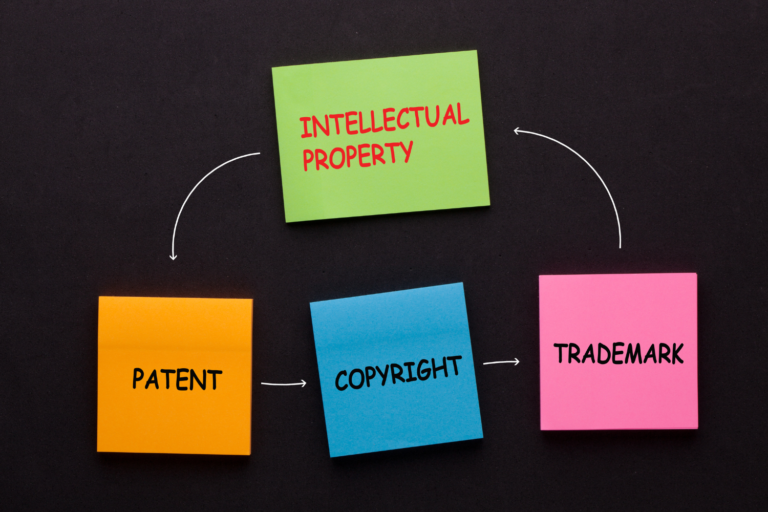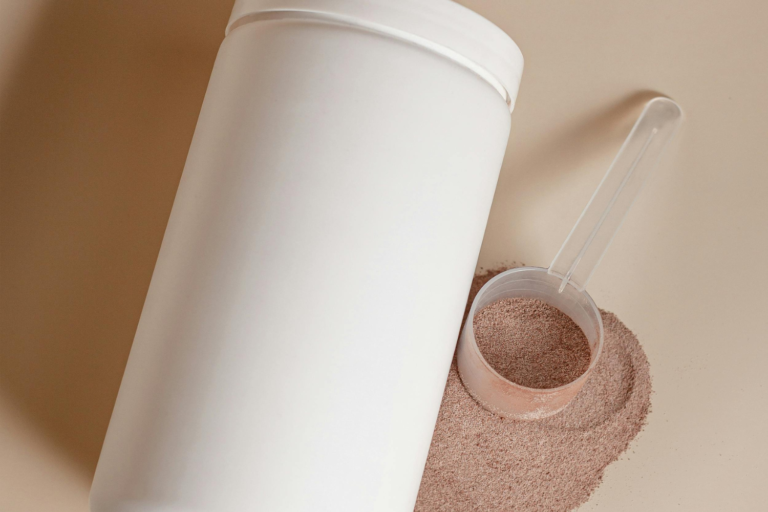Choosing the wrong supplement manufacturer can cost your business more than money. It can damage your reputation, delay your launch, and compromise product quality and compliance. In a market shaped by strict FDA regulations, evolving consumer preferences, and high manufacturing standards, it’s essential to work with a partner who understands both compliance and market demands. Using clear supplement manufacturer criteria is the only way to avoid these risks.
Finding the right manufacturer is one of the most important steps when starting or scaling a dietary supplement business. This guide breaks down the most critical criteria into three core areas: business profile, product factors, and transparency. It’s built to help gym owners, wellness influencers, and brand founders make clear, confident decisions from the start.
Pillar 1 – Business Profile: Evaluate the Foundation of the Partnership
A manufacturer’s business profile tells you how stable and dependable they are. Before trusting them to manufacture supplements for your brand, look closely at who they are, how they operate, and what others say about working with them.
How Long Has the Manufacturer Been in Business?
Longevity in the dietary supplements industry often points to consistency, accountability, and the ability to navigate FDA regulations. Manufacturers with a proven track record tend to understand complex compliance rules like good manufacturing practices and labeling requirements.
If a company has survived changes in consumer preferences, supply chain issues, and updated safety standards, it’s likely built strong systems for quality assurance. Look for contract manufacturers that have weathered industry changes without frequent shutdowns or warning letters from the FDA.
Is the Leadership Team Experienced in the Supplement Space?
The team behind a supplement manufacturer should include experts in regulatory affairs, product development, ingredient sourcing, and quality control. Their experience directly affects how well the company can ensure product quality from raw materials to the final product.
Research the backgrounds of key leaders. Have they worked in the supplement industry before? Do they understand the specific needs of businesses focused on consumer health, food safety, or certified organic products? These questions can reveal a lot about the direction and reliability of the manufacturing organization’s quality control and compliance measures.
What’s the Ownership Structure and Financial Standing?
A private manufacturing facility might offer more flexibility, but a public one often provides transparency due to reporting requirements. Either way, financial stability matters.
Signs of instability, such as missed payments, delayed production, or abrupt staff changes, can disrupt your business. Ask direct questions, and don’t be afraid to request basic financials or a client reference that can confirm timely delivery and professional conduct.
What Do Clients and Employees Say?
Online reviews often tell you what a polished sales pitch won’t. Check Glassdoor for employee feedback and Google for client reviews. Patterns of complaints, especially about ethics, management, or fulfillment, are hard to ignore.
Reach out to former or current clients directly if possible. Ask how the company handles production delays, quality issues, or regulatory problems. Honest answers can help you avoid working with supplement manufacturers that cut corners.
Red Flags in Business Profiles
Not every supplement manufacturer is built for long-term partnerships. When reviewing a business profile, certain warning signs can indicate deeper issues that may impact your dietary supplement business, product quality, and consumer safety. Keep an eye out for the following red flags:
- Frequent rebranding or name changes, which can signal a history of regulatory issues or attempts to distance oneself from a damaged reputation
- Ongoing legal problems or unresolved FDA warning letters related to supplement industry violations
- Poor employee retention or signs of a toxic work environment that may affect quality assurance and operational consistency
- Unclear or shifting ownership structure, which can create instability and affect your ability to scale with confidence
- Lack of transparency about compliance with FDA regulations, current good manufacturing practices, or other required safety standards

Pillar 2 – Product Factors: Ensure They Can Deliver at Scale and with Quality
Even the strongest business profile doesn’t matter if the manufacturer can’t meet your product needs. From custom formulations to quality supplements, their capabilities must align with your goals and your target market.
Can They Handle the Product Types You Need?
Not all manufacturers are set up to produce every form of supplement. Some specialize in capsules, others in fine powders, gummies, or functional beverages. If you want to launch a combination like herbal products with Vitamin C, you’ll need a facility equipped to handle it.
Check if they can manufacture supplements using your specific formula or if they only offer standard private-label options. Equipment, certifications, and processes should match your desired product type.
What Does Their Quality Control System Look Like?
Strong quality control is essential in the supplement industry. Look for manufacturers that follow current good manufacturing practices and conduct their own testing. This includes identity testing, batch tracking, and contamination prevention.
Ask if they use third-party Good Manufacturing Practices (GMP) certification, and request certificates of analysis (COAs) for each batch. These steps show a commitment to product testing and regulatory compliance.
Which Certifications Do They Hold (and Maintain)?
A reliable supplement manufacturer should meet recognized quality standards such as NSF Good Manufacturing Practices (GMP) certification, USDA Organic, or Non-GMO verification. But holding certifications alone isn’t enough. They must be current, valid, and easy to verify.
Ask for current documentation. Check the NSF website or other third-party certification databases to confirm that certifications are valid and active, and verify the manufacturer’s FDA registration status. These credentials add an extra layer of trust and show they follow strict manufacturing and quality standards.
Do They Offer Custom Formulation or Just Private Label?
If your brand depends on offering a unique formula, such as supplements for specific dietary needs or different consumer preferences, you’ll need a manufacturer that offers custom formulations. Some may only offer ready-made options used by many manufacturers.
Ask about their R&D team and their ability to adjust formulas using high-quality ingredients. Get clear on who owns the formulation and what it would take to modify or scale it in the future.
Are MOQs and Pricing Startup-Friendly?
Minimum order quantities (MOQs) vary. Some manufacturers require large commitments, while others offer flexible pricing for small brands. Low MOQs can help startups test the market before investing heavily.
Review the full cost breakdown, not just the unit price. Understand shipping, packaging, labeling, and any regulatory fees. True landed cost helps you plan pricing and protect your margins.
What Are Their Average Lead Times?
Delayed production can stall your entire supply chain. Ask for real lead times, not best-case estimates. You need timelines you can plan around.
Pay attention to factors that may cause delays, like ingredient shortages, staffing gaps, or seasonal backlogs. A clear timeline, backed by process transparency, helps ensure product quality and on-time delivery.

Pillar 3 – Transparency: Trust is Built, Not Assumed
A good supplement manufacturer will openly share how they operate, what standards they follow, and where limits exist. Clear communication builds trust and protects your brand from unexpected risks.
Do They Offer Facility Tours or Virtual Walkthroughs?
Seeing a manufacturing facility in action tells you more than a brochure ever could. A tour lets you observe how they manage raw materials, follow sanitation protocols, and implement quality standards like batch segregation or allergen control.
If a manufacturer refuses a tour or virtual walkthrough without a valid reason, it may signal they aren’t following current good manufacturing practices or are trying to hide operational issues. In this industry, visual proof of quality standards matters.
Are They Willing to Share Internal SOPs or Compliance Docs?
You should be able to review key documents like standard operating procedures (SOPs), recall plans, and recent product testing reports. These records show how they ensure quality and meet FDA guidelines.
Ask to see third-party GMP certification or recent identity testing reports. A trustworthy supplement manufacturer will already have this paperwork organized and ready to share, especially with serious clients.
How Transparent Are They About Challenges or Limitations?
Every manufacturer has limits, whether in production scale, ingredient sourcing, or turnaround time. A reliable partner doesn’t pretend to be perfect. They’ll tell you what they can’t do upfront.
Look for honesty about potential risks, including sourcing delays or capacity limits during peak season. It’s better to work with a company that sets realistic expectations than one that overpromises and misses deadlines.
Do They Keep Up with Changing Regulations?
FDA regulations and industry guidelines evolve regularly. A manufacturer that doesn’t stay current may risk non-compliance with the Dietary Supplement Health and Education Act (DSHEA) and other regulations.
Ask how they monitor regulatory updates and what steps they take to stay in line with the Dietary Supplement Health and Education Act. Proactive companies will mention staff training, third-party audits, or internal compliance reviews as part of their routine.

Bonus Pillar: Cultural and Communication Fit (Optional but Impactful)
Shared values and communication styles may not show up on paper, but they shape how well you work together long-term. A manufacturer that understands your mission and communicates clearly can save time, reduce stress, and support your brand as it grows.
Do They “Get” Your Brand Vision?
Some supplement manufacturers focus on volume, not brand fit. Others take the time to understand your audience, product goals, and target market. If they ask thoughtful questions about your business model, it’s a good sign.
Clarity and responsiveness matter. Are your emails returned on time? Do they adapt when plans shift? Strong alignment here supports better decision-making and faster problem-solving.
Will They Scale with You?
Growth comes with new challenges such as larger orders, tighter timelines, and evolving formulas. Ask if the manufacturer has worked with other brands that scaled quickly or entered new markets.
Learn how they handle increased demand, and if their manufacturing facility has space and systems to grow with you. It’s easier to scale with one reliable partner than to switch manufacturers mid-growth.

Choosing the Right Supplement Manufacturer Takes More Than a Price Quote
The strongest partnerships in the dietary supplements industry are built on three essentials: a reliable business profile, the ability to deliver consistent product quality, and a transparent working relationship. These pillars help ensure the manufacturer can meet FDA regulations, follow good manufacturing practices, and adapt to different consumer preferences.
But structure alone isn’t enough. Strong communication and a shared growth mindset also matter, especially when scaling your dietary supplement business. Before signing a deal, take time to verify certifications, review their track record, and assess how they handle compliance and accountability.
Your decision should feel grounded, not rushed.
Frequently Asked Questions
What are the most important criteria when choosing a supplement manufacturer?
Focus on experience, quality control systems, certifications, and transparency to ensure they meet supplement manufacturer criteria and support long-term brand growth.
How do I verify a manufacturer’s certifications and compliance?
Check third-party GMP certification, confirm FDA registration, and request recent COAs or audit reports to ensure product quality and regulatory alignment.
Should I avoid manufacturers that don’t offer virtual tours?
Lack of access to facility walkthroughs can signal poor transparency or outdated processes, which may affect quality standards and assurance.
Is private label better than custom formulation for new brands?
Private label can speed up launch timelines, but custom formulations allow for unique positioning and stronger alignment with your target market.
Can I switch manufacturers later if I’m not satisfied?
Yes, but changing supplement manufacturers mid-stream can disrupt supply chains and delay production, so plan carefully and maintain clear records.
References
- Dietary Supplement Health and Education Act of 1994, Pub. L. No. 103-417, 108 Stat. 4325 (1994). https://ods.od.nih.gov/About/DSHEA_Wording.aspx
- U.S. Food and Drug Administration. (n.d.-a). Compliance actions and activities: Warning letters. https://www.fda.gov/inspections-compliance-enforcement-and-criminal-investigations/compliance-actions-and-activities/warning-letters
- U.S. Food and Drug Administration. (n.d.-b). What is the status of my registration? https://www.fda.gov/industry/fda-basics-industry/what-status-my-registration



